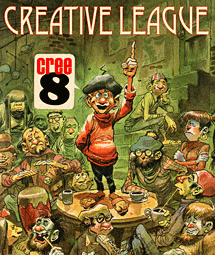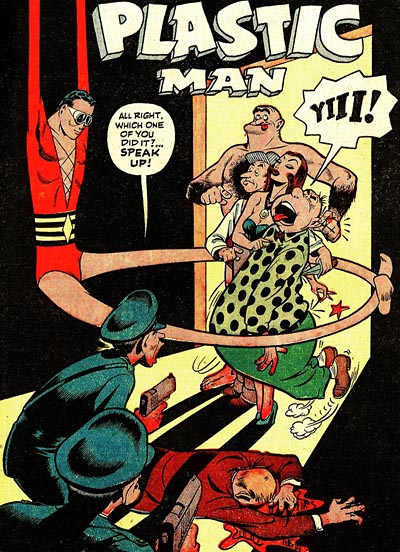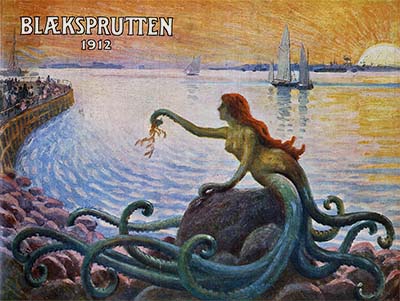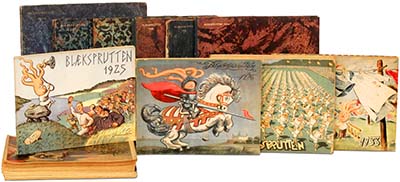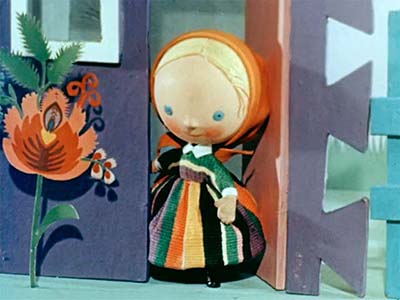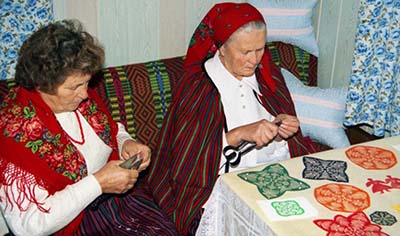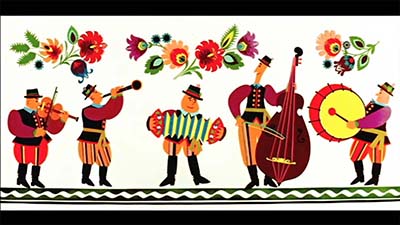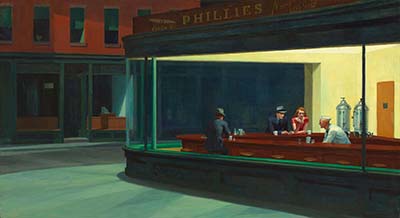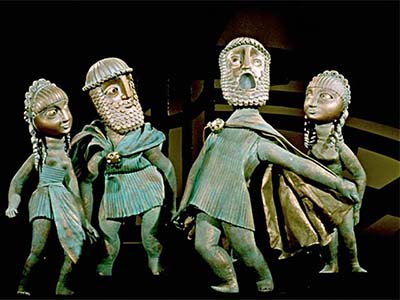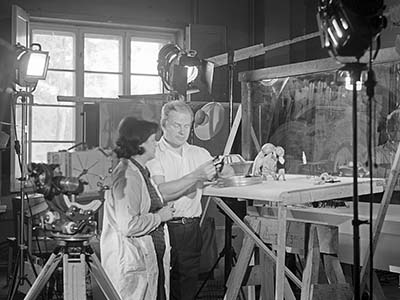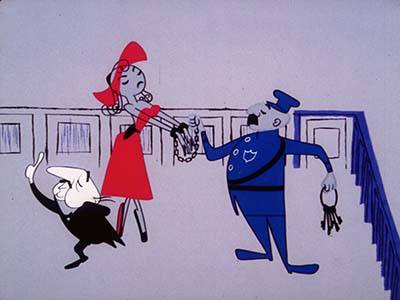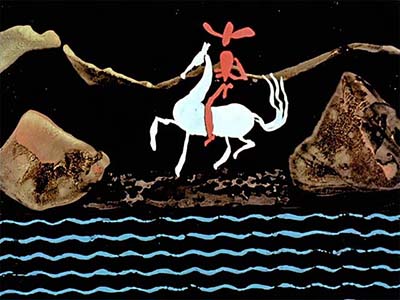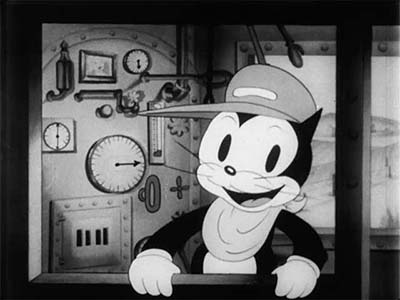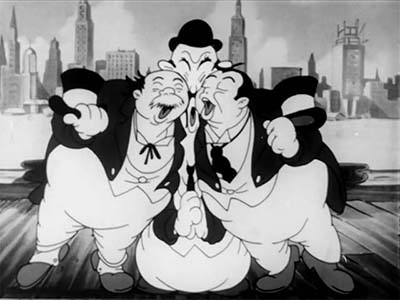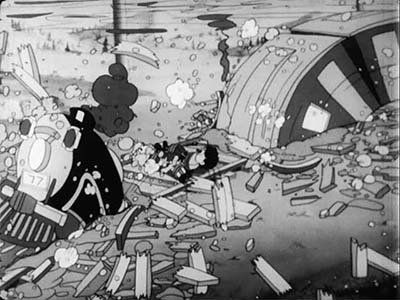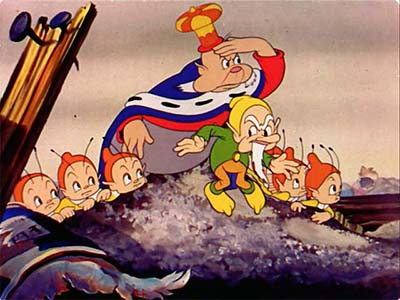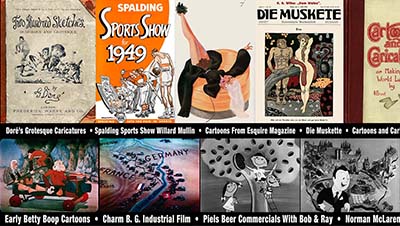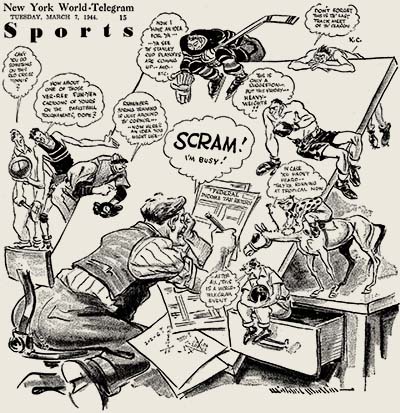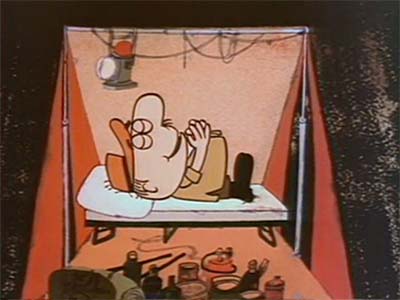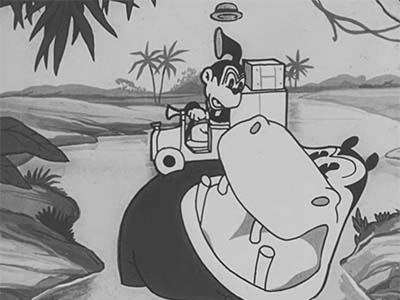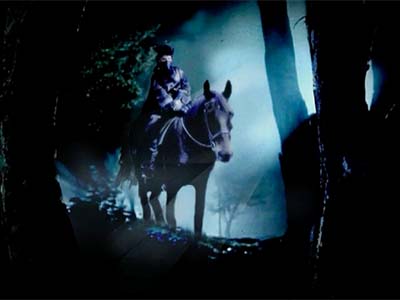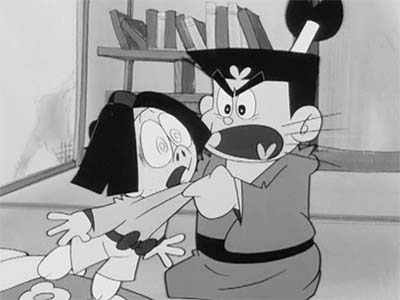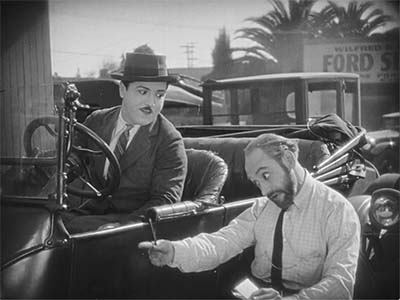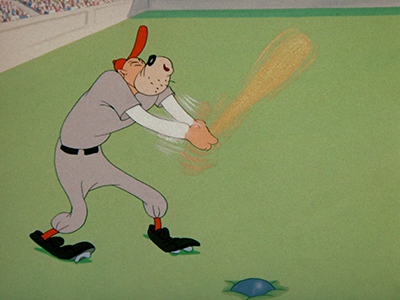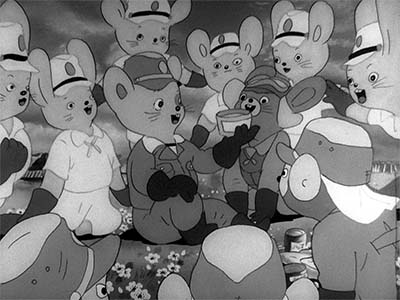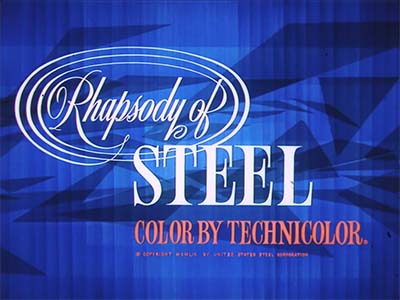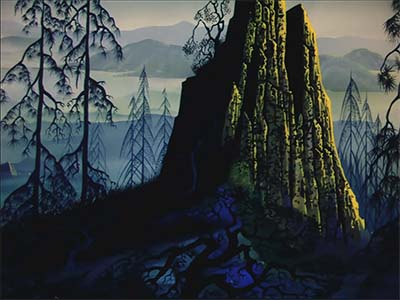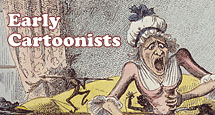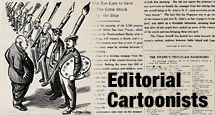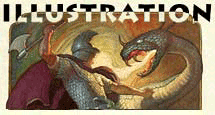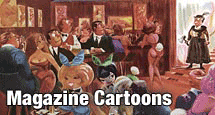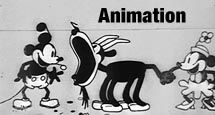
BOOKMARK THIS PAGE.
THERE’S LOTS TO EXPLORE HERE!
Animation Resources is a 501(c)(3) non-profit educational organization dedicated to serving the self study needs of animators, cartoonists and illustrators. If you are a creative person with an interest in the field, we hope you will choose to become a member of Animation Resources. Every other month, members are given access to a high resolution e-books, still framable animated films, podcasts and documentary films— all curated by the Board of Animation Resources.
We understand that times are tough in the animation business… but you can’t afford to lose momentum on your career. Wars aren’t won in battle, they are won in the preparations made before battle. You need to work on your skill set, experiment and learn, and expose yourself to new ideas so your productivity and creativity will make you the first to be hired back when things begin to bounce back.
Animation Resources is doing everything we can to help you do that. During Members Appreciation Month, you can join for a three day trial membership for only A DOLLAR! Yes, you get access to everything our annual members get for three days for only a buck. (Click here for the details on our Dollar Days.) What are you waiting for?
This sample Reference Pack is designed to give you an idea of what Animation Resources has to offer its members, and this is the best time to join. Here is what you’ll get when you join…
- Every month, you will receive a brand new Reference Pack which consists of high resolution downloadable e-books packed with fantastic artwork, rare animated films from our collection, documentaries, podcast discussions and more!
- We also host “Animated Discussions” Events as live-streamed video programs. Past Podcasts are archived along with our Reference Packs and on the Bonus Archive page for annual members.
- Every year or two, Animation Resources provides more benefits for its members, and we occasionally raise our dues a little to allow us to continue to expand our offerings. But if you join today, we promise that YOUR DUES WILL NEVER INCREASE as long as you maintain your membership.
- General Membership is just $95 a year. For students and full time educators, it’s just $70. You can cancel your membership at any time on the Membership Account Page.
JOIN TODAY!
https://animationresources.org/membership/levels/

Over the past decade, Animation Resources has shared over 50 Reference Packs with our members. We have assembled two e-books and two video podcasts highlighting a few of the treasures our members have been able to download. During Members Appreciation Month, we will be sharing these e-books and podcasts with the general public. We hope they inspire you to join us and be a part of building the foundation for the future of animation.
DOWNLOADING INSTRUCTIONS: Below are the links to the sample Reference Pack. To download the files, RIGHT CLICK on the link (Mac users OPTION CLICK) and select SAVE TO DISK. We are delivering high resolution files to you. When you click, it might take several minutes to finish the download, so please be patient. If the link doesn’t work, refresh this page and try again. It’s best to download the files one at a time, rather than all at once. This will avoid timeouts.
PLEASE NOTE: This material may be protected by copyright and is provided to supporters of Animation Resources under Fair Use provisions for critical analysis, educational and reference purposes only. Permission to copy and print is granted for personal use only and these files are not to be distributed or shared with others. All rights reserved. After the period of availability, these files will be deleted from the server and may never be offered again. Downloading of this material constitutes agreement to these terms.
PDF E-BOOKS:
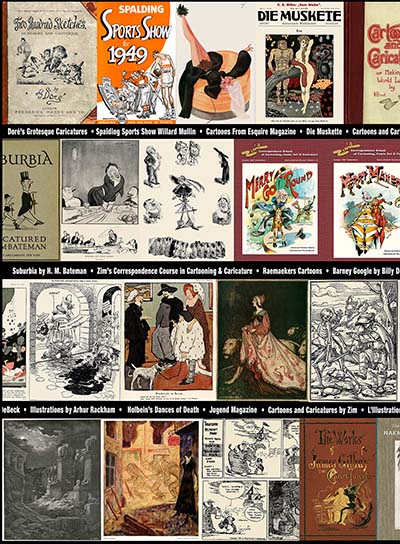
Best of The E-Books![]()
A Sampler of the First 10 Years of RefPack E-Books
The creative world of animation has its roots in the art of cartooning, and the history of cartooning extends back centuries. Over the past decade, Animation Resources’ e-books have included thousands of pages of classic cartooning, illustration and art instruction, ranging from 16th century woodblocks to newspaper comics from the 1920s, to powerful political cartoons from around the world, to complete courses teaching the fundamentals of cartooning and caricature… all designed to broaden the horizons of both professional and student artists.
This pair of e-books gather together some of the highlights from the first 50 members only e-books. It is provided to the general public to give prospective members an idea of what they will receive when they join. Members and volunteers are the lifeblood of our organization and we appreciate everything that the hundreds of people who have contrinuted to our efforts have accomplished. These e-books are dedicated to them.
Adobe PDF File / 377 Pages / 1.56 GB Download
Adobe PDF File / 187 Pages / 530 MB Download
JOIN TODAY!
https://animationresources.org/membership/levels/
VIDEO PODCAST:
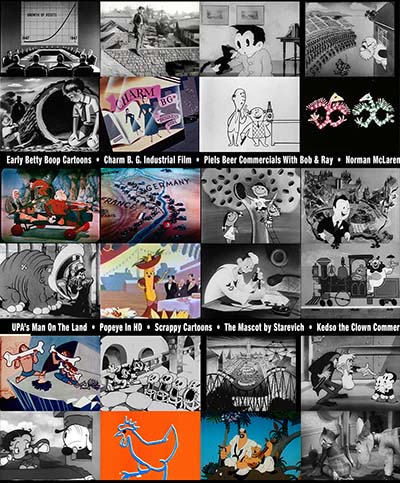
Best of Videos 1 to 50
Sampler Reels of the First 10 Years of RefPack Animation Videos
Some people are under the mistaken impression that animation is a genre, best suited for children’s cartoons. They think that specific established styles and techniques are the only way cartoons should look. It’s easy even for animators to fall into the trap of making cartoons that look just like all the other cartoons on TV and in theaters. But Animation Resources encourages film makers to think of animation as a medium, capable of breaking new ground by doing innovative and great things. We encourage our members to think outside the box by sharing unique examples of powerful animated film making that exploit the best aspects of the medium.
In the past decade of Reference Packs, Animation Resources members have had an opportunity to see rarely seen films of all types, from century old silent shorts, to stop motion puppet films, animation from China, Poland, Japan and Russia; animated commercials from the early 1950s; classic theatrical cartoons; experimental animation and rare industrial training films… Our intent is not to bring back a “golden age” of animation. We encourage artists to build on the past as a foundation for surpassing it.
This pair of reels gather together some clips of the highlights from the first 50 members only Reference Packs. They are provided to the general public to give prospective members an idea of what they will receive when they join.
M4V Video File / SD / 48:06 / 456 MB Download
M4V Video File / HD / 1:48:43 / 2.58 GB Download
PLEASE NOTE: These video files are large. Please download them one at a time to avoid timeouts.
JOIN TODAY!
https://animationresources.org/membership/levels/

Here’s a little extra for you to download!
Jack Cole’s![]()
Plastic Man![]()
Issues Nos. 1, 2 & 3 (1943)
Jack Cole’s “Plastic Man” debuted in Police Comics in 1941 and was an immediate hit. Cole’s offbeat humor and Plastic Man’s ability to take any shape gave the cartoonist the opportunities to experiment with text and graphics in groundbreaking manner, helping to define the medium’s vocabulary, and making the idiosyncratic character one of the few enduring classics from the Golden Age to modern times. Plastic Man gained his own title in 1943.
This PDF e-book contains the first three issues of Plastic Man comics and includes a biography of Jack Cole. It is optimized for display on the iPad or printing two up with a cover on 8 1/2 by 11 inch paper.
Adobe PDF File / 183 Pages / 245.5 MB Download
JOIN TODAY!
https://animationresources.org/membership/levels/
DVD QUALITY VIDEO:![]()
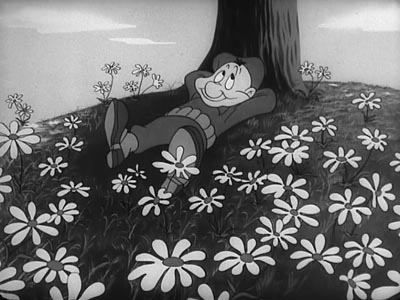
REFPACK001: Private Snafu in Gas![]()
Army/Navy Screen Magazine (1944)
The Private Snafu training cartoons were produced by Warner Bros for the War Department during WWII. “Gas”, which deals with the importance of having an operating gas mask handy, was directed by Chuck Jones and written by Ted “Dr Seuss” Geisel. The voices were by Mel Blanc and Billy Bletcher.
M4V Video File / 4:43 / 77.5 MB Download
This DVD quality MP4 file is provided courtesy of Thunderbean Animation and is included in HD on Private Snafu Golden Classics.
JOIN TODAY!
https://animationresources.org/membership/levels/
DVD QUALITY VIDEO:![]()
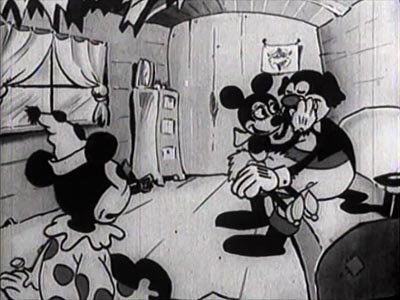
Aesop’s Fables: Circus Capers![]()
Van Beuren Studios (1930)
Disney admitted that in the 1920s, his goal was to produce cartoons as good as the Aesops Fables series. However after the Fables introduced a boy and girl mouse that bore a strong resemblance to Mickey and Minnie, Disney filed suit and had the cartoons pulled from theaters. This cartoon is one of the most blatant Mickey ripoffs, and one of the funniest.
M4V Video File / 9:13 / 230.5 MB Download
This DVD quality MP4 file is provided courtesy of Thunderbean Animation and is included on Uncensored Animation from Van Beuren.
JOIN TODAY!
https://animationresources.org/membership/levels/
For the past decade, Animation Resources has been serving artists working in the fields of animation, cartooning and illustration. Our volunteers and members have pulled together to raise the bar for our art form, and it’s time to celebrate… It’s Members Appreciation time again!
During the month of February, Animation Resources expresses our appreciation for to members with a very special Reference Pack, and we invite you to become a member too. For the next 30 days, we will be sharing reasons why you should join us. Our benefits of membership far exceed the cost of our annual dues.

We understand that it’s a difficult time for professional animators- work is scarce. But wars aren’t won in battle… they’re won in the preparations made in peacetime. Layoffs aren’t the time to rest on your laurels. You can’t afford to lose momentum in your career. You need to work on your skills, take time to learn and experiment, and expose yourself to new ideas so your productivity and creativity will put you at the top of the list for hires once the downturn is over. Animation Resources wants to help you to do that and all we ask is $95 a year. You can afford that.
Animation Resources is making it as easy as we can to help you discover the value of membership in our organization. During Member Appreciation Month, you can join Animation Resources for a three day trial for only a buck! Yes, for three days, you’ll have access to everything our members get in the current Reference Pack… e-books, downloadable videos, documentaries, podcasts and more… all for only a dollar. (Click here for the details on our Dollar Days.) What are you waiting for?
You can find out what our members get at the Member Appreciation Page. It’s easy to join. Just click on this link and you can sign up right now online…
JOIN TODAY!
https://animationresources.org/membership/levels/
![]()
![]() Animation Resources depends on your contributions to support its projects. Even if you can’t afford to join our group right now, please click the button below to donate whatever you can afford using PayPal.
Animation Resources depends on your contributions to support its projects. Even if you can’t afford to join our group right now, please click the button below to donate whatever you can afford using PayPal.





